BAGHDAD (Army News Service, Jan. 25, 2008) -- Most of Sha'ab was still sleeping as a Humvee weaved its way through the neighborhood's maze-like streets early one frigid, January morning.
Leading the patrol was 1st Lt. Austin Dziengelewski's platoon of paratroopers from 2nd Battalion "The White Falcons," 2nd Brigade Combat Team, 325th Airborne Infantry Regiment. The patrol was on its way to a squatter village in the area, where displaced families were living in makeshift tents. With the temperatures dropping below freezing at night, the paratroopers were worried people in the camps might freeze to death. The platoon's mission was to find them and see what help they needed.
As the Humvee rounded a corner, the squatter village appeared. The vehicles pulled up and the platoon dismounted. With breath steaming out of their mouths in the chilly air, the paratroopers picked their way through the ramshackle camp. It was a nest of tents, tarps, and scrap metal that looked as if it had been picked up and dropped there by a tornado.
The head of a family emerged from one of the tents and spoke with Dziengelewski. He told the lieutenant that sectarian violence had forced him and his family to flee their home in another part of Baghdad and settle in Sha'ab.
"Why here'" Dziengelewski asked him.
"It is safe here," the man replied.
After Dziengelewski promised to return later with blankets, tarps and food, the platoon headed back to base. On the ride back, the man's seemingly insignificant words hung in the air.
<i>It is safe here.</i>
A year's worth of work, translated into four words. When the White Falcons first arrived in Sha'ab with the mission of improving security, the neighborhood was gripped by constant violence. Twelve months later, it is safe enough that families flee to it as a sanctuary.
For paratroopers like Spc. David Higuera, a medic with Company B, the area's revival against all odds is a point of pride.
"After a year, when you look back on how it was, compared to now - things are definitely a lot better," Higuera said. "I know for a fact that when I look back on all this, I'll be proud of what we did."
<b><u>Welcome to the Neighborhood</u></b>
In February, the 325th Abn. Inf. Regt. became one of the first units to move into a battle space as part of Operation Fardh al Qanoon -- the name for the strategy to stabilize violence in Baghdad by pushing thousands of additional U.S. and Iraqi soldiers into the city's neighborhoods.
The White Falcons were given the mission of securing Sha'ab, a mainly Shia district in Eastern Baghdad dominated by violent militia gangs.
The paratroopers set up their base, Combat Outpost Callahan, inside an abandoned, fortress-like shopping center. Inside the cavernous building, a layer of grime covered every surface and rats scurried along the exposed ceiling shafts. It had the feel of an underground bunker, even though it was five stories tall. Troops began calling it "the Death Star."
From Callahan, the paratroopers conducted patrols and operations at a relentless tempo that never slackened. Their priority in the first months was to aggressively target the militia groups and insurgent cells that were causing havoc in the neighborhood. Before long, they started to see results.
According to battalion commander Lt. Col. Richard Kim, by the end of summer 2007, the paratroopers had captured the equivalent of an enemy battalion.
The success came as no surprise to Capt. Will Canda, Company B's commander. Canda said no one is better than the White Falcons when it comes to "kinetic operations."
"It's not an accident that Bravo Company has 135 guys in Camp Cropper and over 400 detained," he said. "It's because we do this stuff all the time, and we're very good at it."
<b><u>Rising to the Challenge</u></b>
By spring, bodies had stopped turning up on the streets of Sha'ab, and Canda marveled at the number of arrests his troops had made.
"We're literally running out of bad guys to catch," he said.
With the security situation vastly improved, the White Falcons began focusing on complex counter-insurgency tasks such as improving the essential services in the area, training the Iraqi Security Forces, and strengthening the local government agencies.
Staff Sgt. Robert Brogdon, a squad leader with Company B, said the new emphasis on non-combat operations forced the paratroopers, most of whom are proud to be "door-kickers," out of their comfort zone. But Brogdon said they rose to the challenge.
"We didn't do just the things we're good at or the things we liked to do, we did it all," he said. "We're professionals. Whatever they tell us to do, we're going to do it, and we're going to do it well."
By networking with local leaders, renovating schools, and getting the trash picked up, the White Falcons were pursuing a strategy that had been meticulously mapped out at the highest levels of command. But for the Soldiers out pounding the pavement in Sha'ab, it all boiled down to something simpler, said Spc. Herrick Lidstone, a radio operator with Company B.
"For us, we don't look at it in terms of the big picture," Lidstone said. "For us, it's just going out everyday and making the streets as safe as we can make them."
<b><u>Taking Stock of Their Impact</u></b>
By the Fall of 2007, Sha'ab was seeing a clear turnaround.
In December 2006, there had been some 160 violent deaths in the area. A year later, that number had dropped to just five -- a 97 percent decrease, said White Falcons' commander, Lt. Col. Richard Kim.
It was a major achievement for the paratroopers, one they haven't even fully come to grips with yet, said 1st Lt. Josh Ollek, a platoon leader with Company B.
"I don't think it will really sink in until we're home and we start thinking about everything we accomplished," he said.
But the success came at a heavy price. Nine Soldiers from the Battalion and its supporting units were killed in action during the deployment, and scores more were wounded. Combat Outpost Callahan withstood more than 30 withering barrages of rocket and mortar rounds. On every patrol, roadside bombs were a constant danger.
With many of its paratroopers on their fourth tour of duty in Iraq, the White Falcons were already one of the Army's most combat hardened units. But this deployment has left the paratroopers with a seen-it-all, done-it-all layer of toughness shared by even the newest private. They pepper their talk with casual references to horrific events -- like the time insurgents catapulted 100-pound propane tanks filled with plastic explosives over the walls of the combat outpost. They make morbid jokes about the IEDs that wait for them on the next patrol. They kid about hoping for the "million-dollar" wound that will send them home in one piece.
But as hardened as they may appear on the outside, almost all the paratroopers are wrestling with homesickness, and the year's -worth of birthdays, anniversaries and holidays they have missed.
As they walked a patrol one recent morning through a market just beginning to fill up with customers, the paratroopers from 2nd Platoon, Co. B kept up a running commentary during every halt about things they missed from home.
"You know what I miss'" one of the paratroopers asked. "Civilian clothes."
"I miss real food," another offered.
"I miss being able to walk down the street without an M4 and huge bag on my back," said (Doc) David Higuera, as he labored under his swollen medic bag.
"You know what I miss' America," said Staff Sgt. James Price, pretty much ending the conversation in agreement.
And yet, much as they might long for home, the paratroopers remain focused on the mission and on completing the job at hand.
"Right now, this is our world. This is our lives," Staff Sgt. Robert Brogdon said. "So until the day we leave, we're just going to keep our heads down and keep doing what we have to do."
For now, that means continuing to help the people of Sha'ab get on their feet. Which is why, a few hours after nightfall on Jan. 14, the paratroopers from Company B returned to the squatter village with a large truck full of tarps, cots, and food for the refugee family. The family members, who had been huddled around a charcoal heater helped unload the truck as children danced with excitement around the pile of supplies. Ollek shook hands with the grateful father. Sgt. 1st Class Jorge Mazuela, the platoon sergeant, watched the whole scene with an irrepressible smile.
For a moment, the paratroopers looked like big softies, but with all the blood, sweat and tears the White Falcons have invested in Sha'ab, it was impossible not to get a little emotionally involved, Mazuela said.
"You're here, and you're not going anywhere, so you might as well give a damn," Mazuela said.
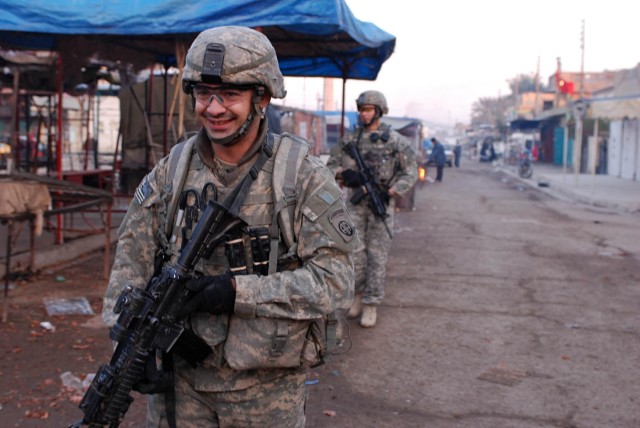
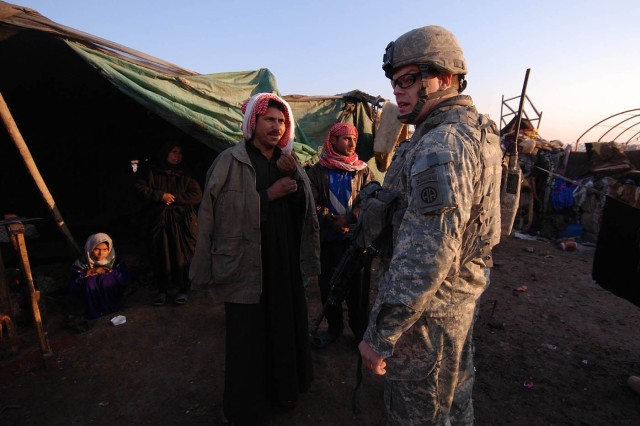
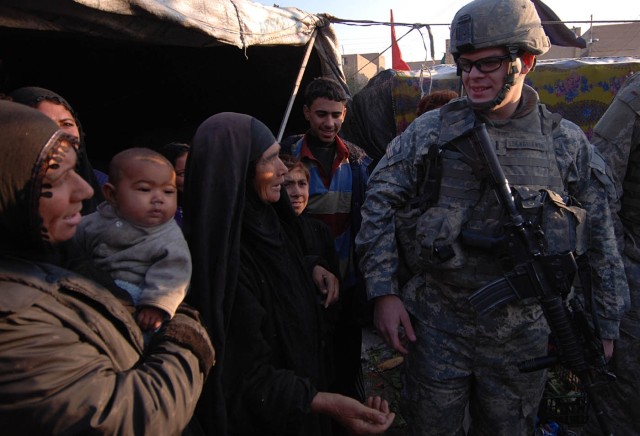
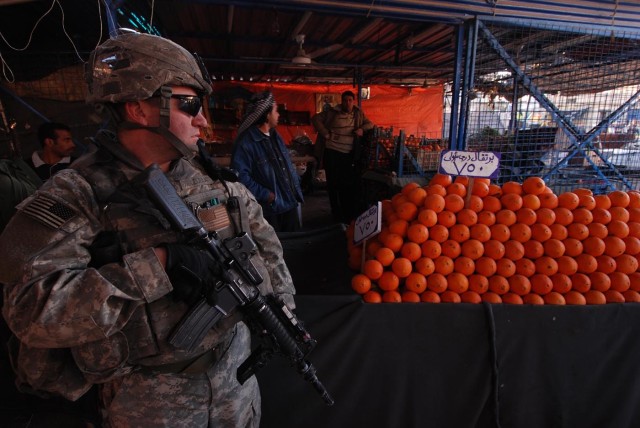
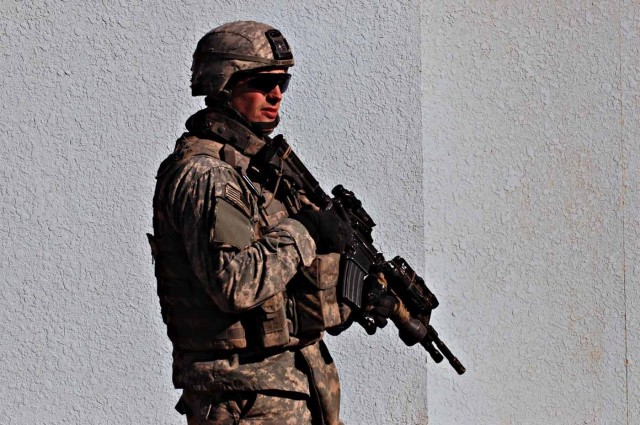
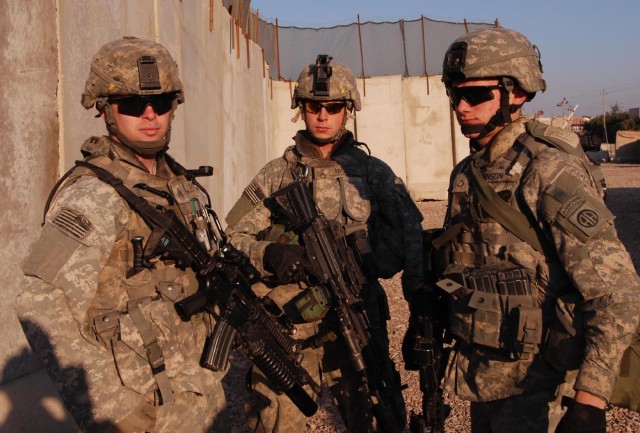
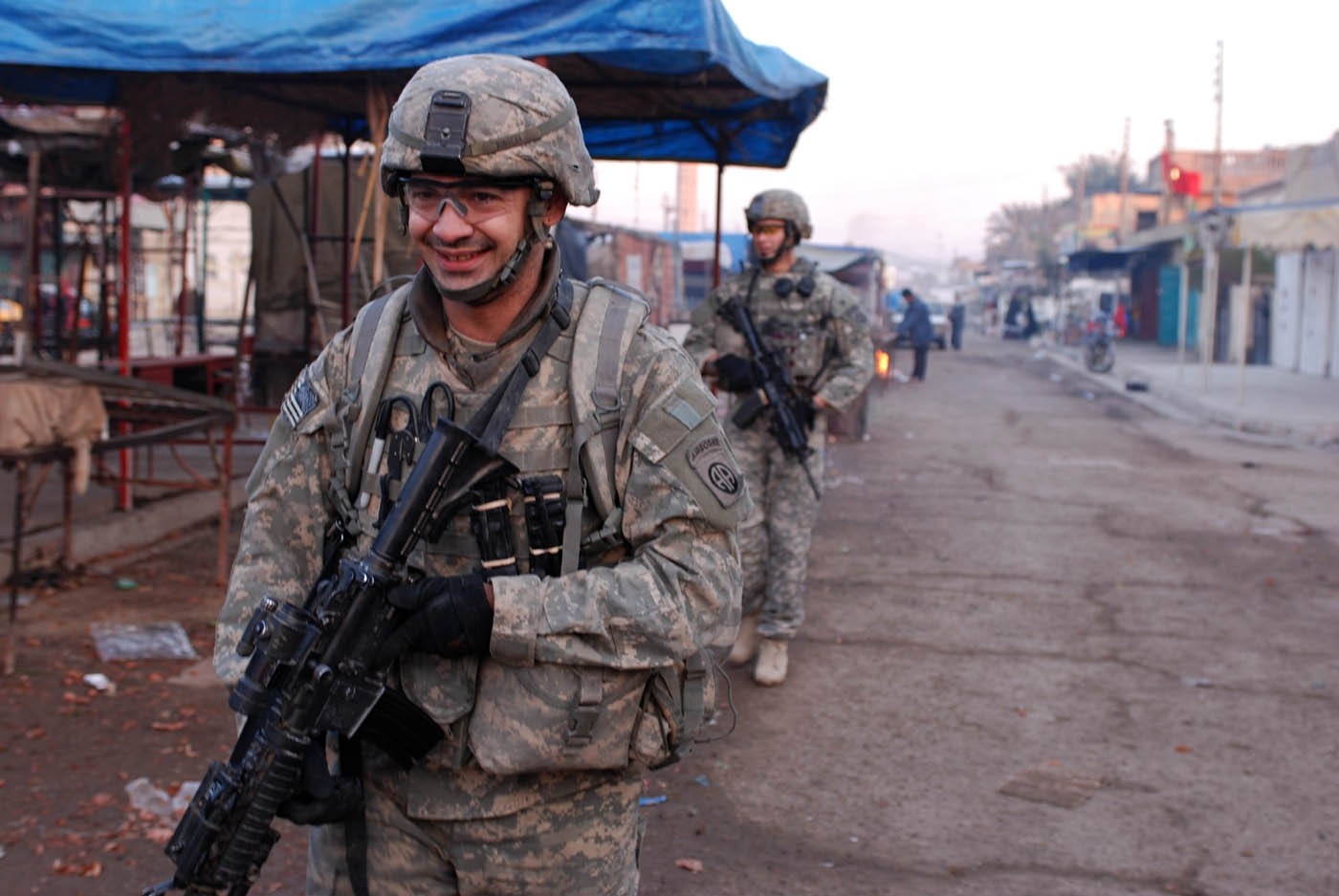
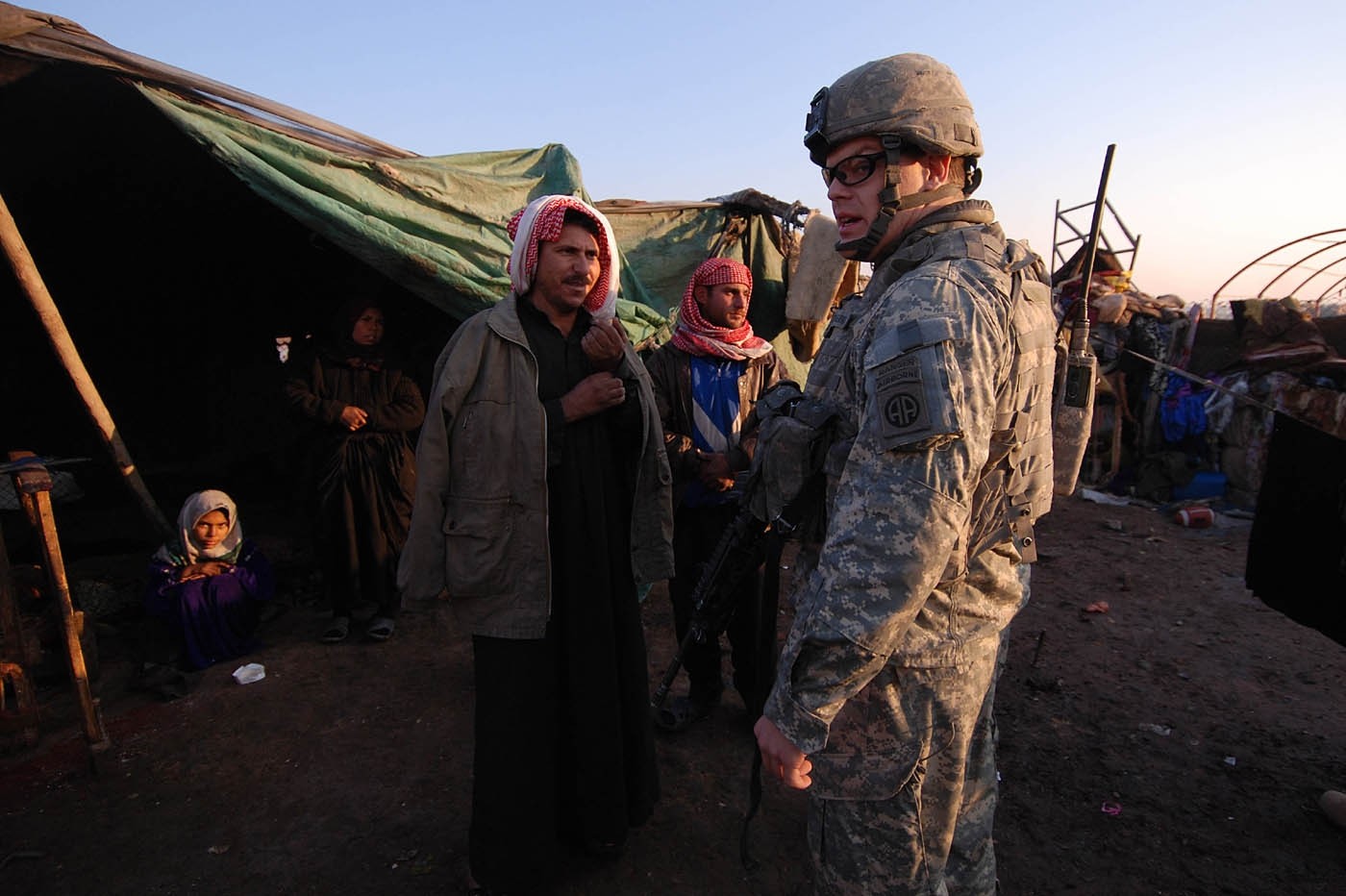
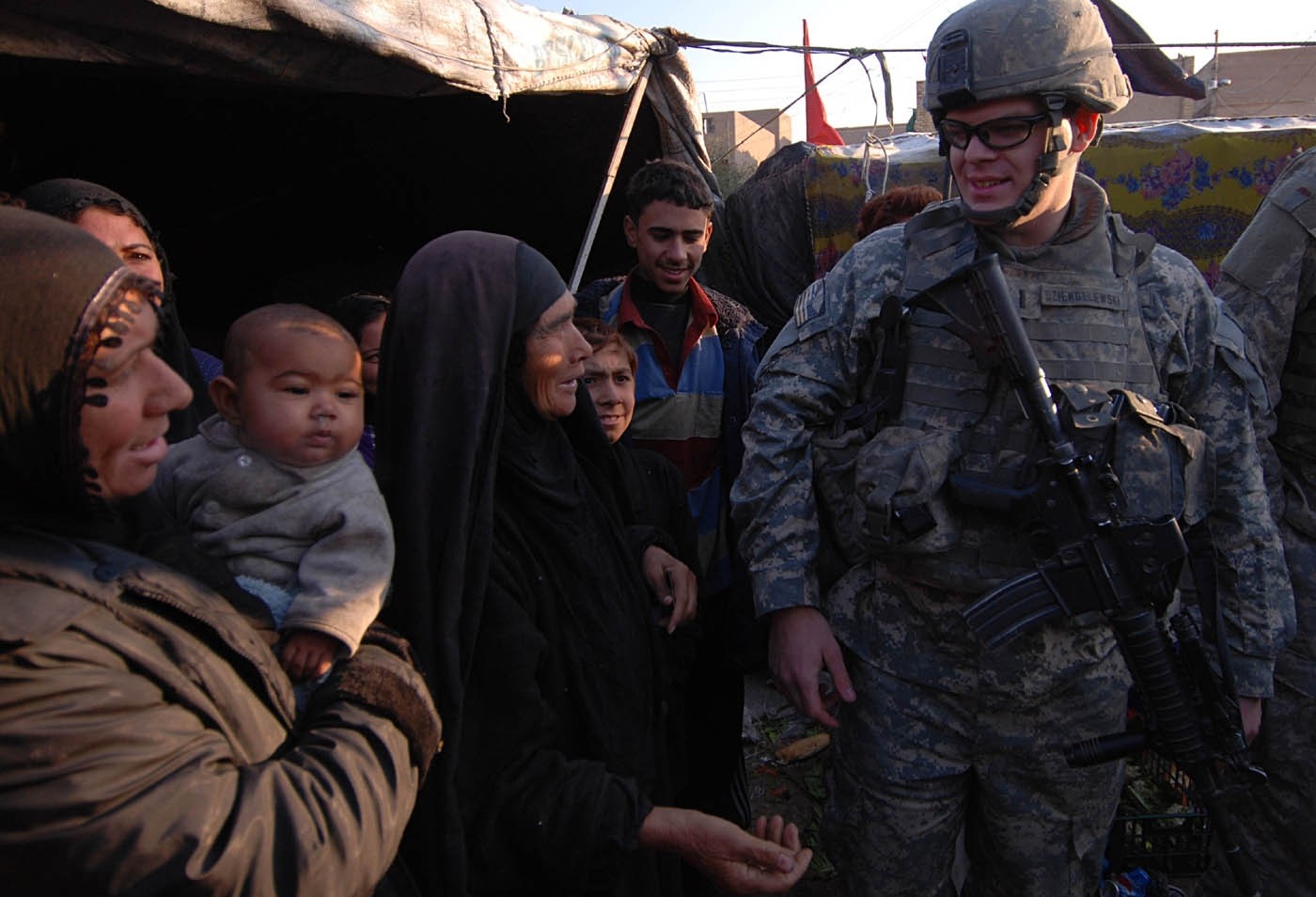
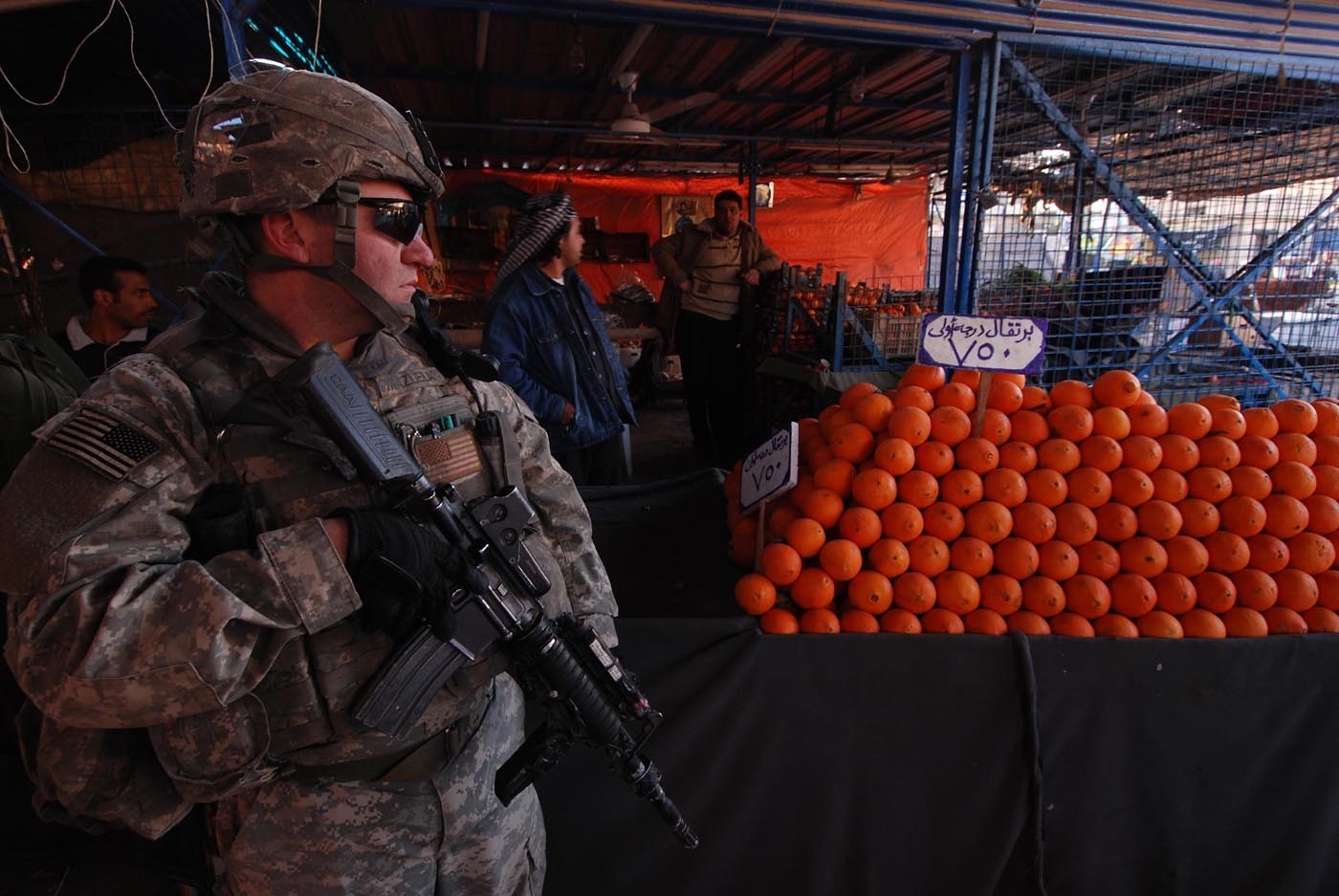
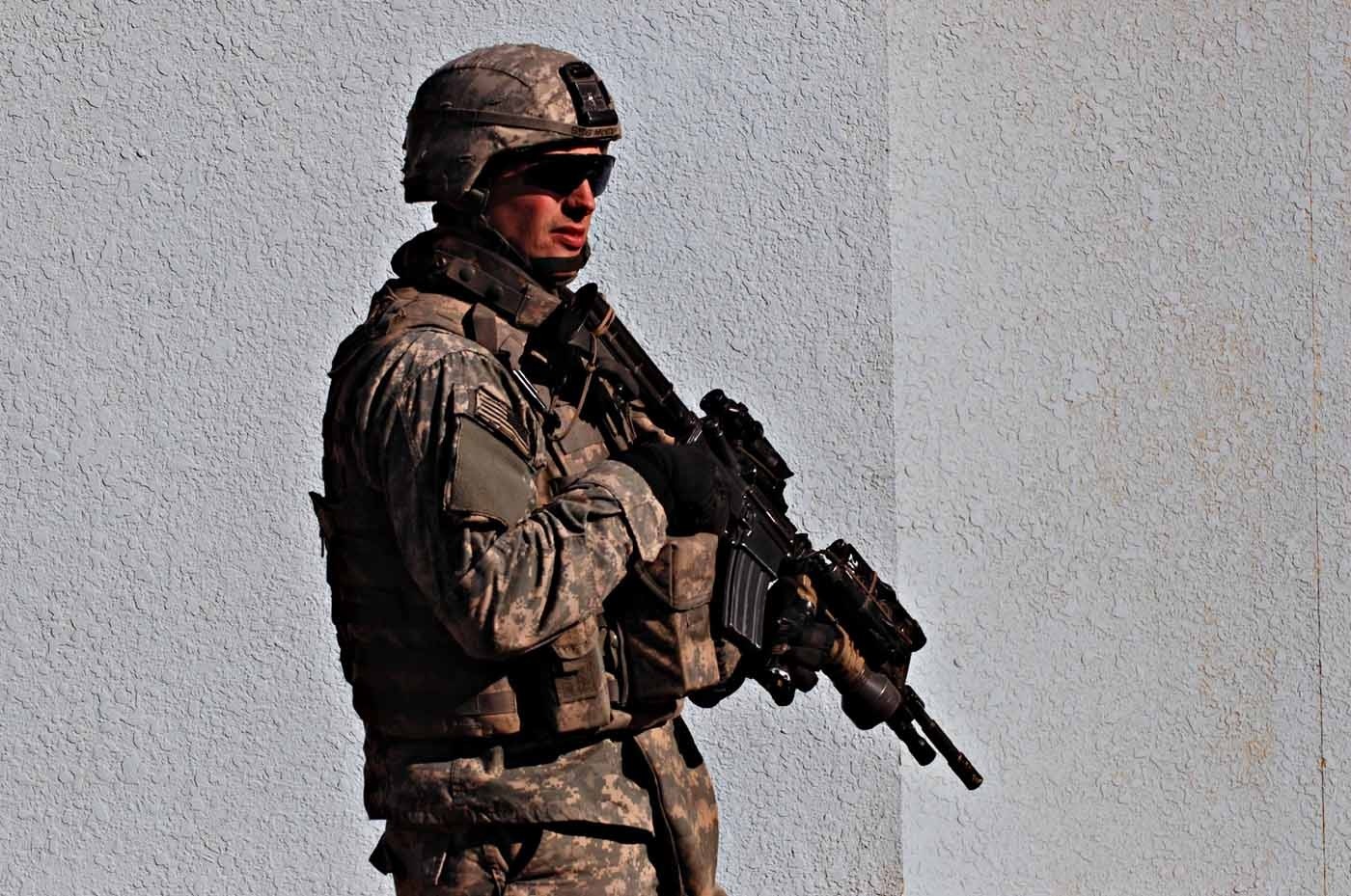
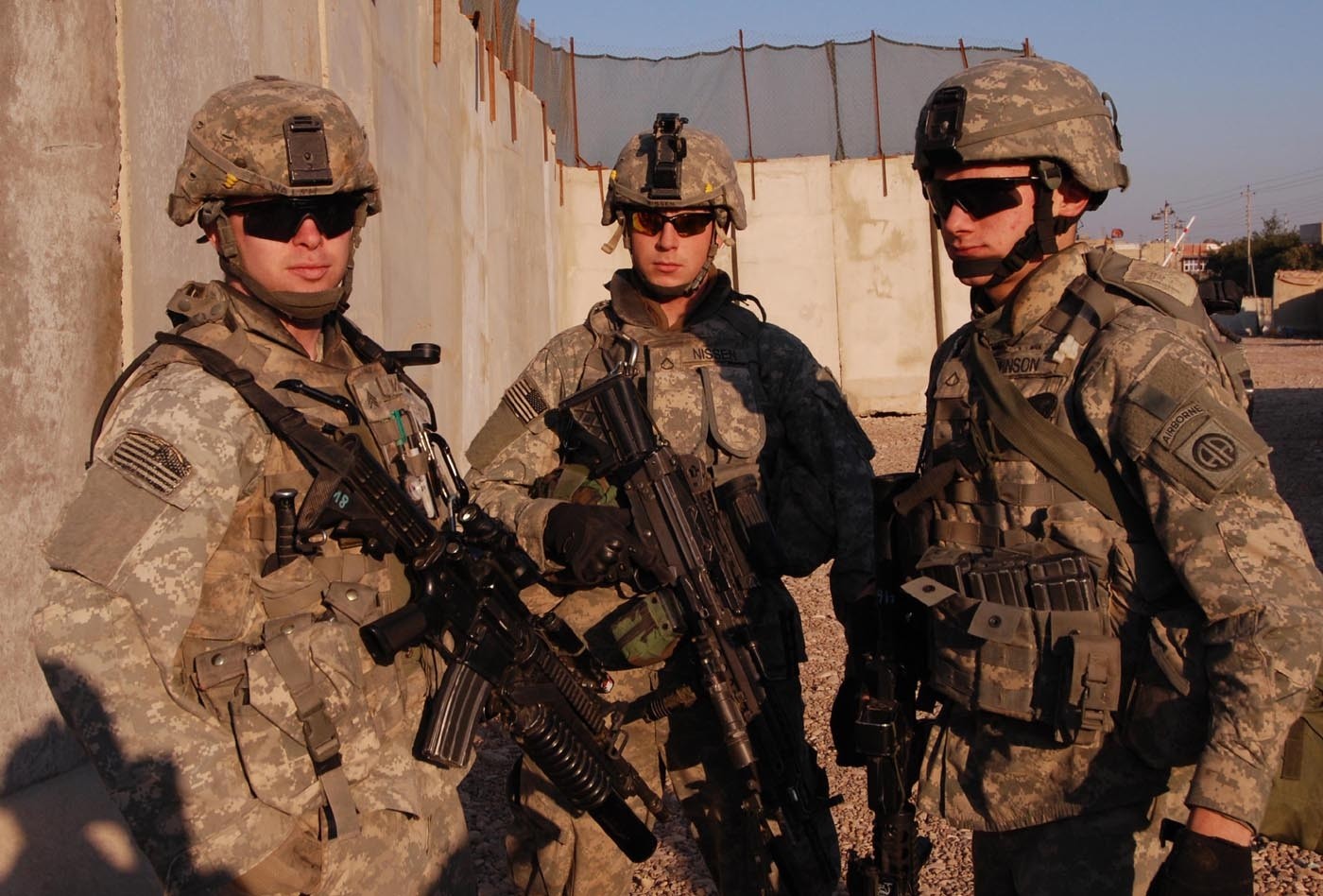
Social Sharing